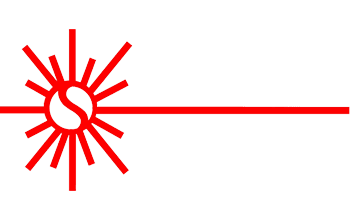Views: 1006 Author: Site Editor Publish Time: 2020-11-28 Origin: Site
laser marking is a permanent process that uses a beam of concentrated light to create a lasting mark on a surface. Typically performed with a fiber,CO2 laser, pulsed, continuous wave, green, or UV laser machine, laser marking encompasses a wide variety of applications.
Laser marking can be automated and processed at high speeds, while leaving permanent traceability marks on a range of materials, including steel, titanium, aluminum, copper, ceramic, plastic, glass, wood, paper, and cardboard. Parts and products can be marked with text (including serial numbers and part numbers); machine-readable data (such as barcodes, Unique ID codes, and 2D Data Matrix codes); or graphics.
If you’re looking to mark metal, what you need to buy is a fiber laser. If you’re looking to mark organic materials like textiles, wood, or cardboard, a CO2 laser is the best choice.
If your application is laser cutting of metals, you’ll most likely need a high-power CW (continuous wave) fiber laser. For other materials like plastics and rubber, it can be one or the other.
The main difference that determines the type of materials each laser can process is the wavelength. A fiber laser usually has a wavelength of 1,060 nm while CO2 lasers have wavelengths in the 10,600 nm range. In general, fiber lasers have many advantages over CO2 lasers.
Fiber lasers are best suited for high-contrast markings like metal annealing, etching, and engraving. They produce an extremely small focal diameter (resulting in intensity up to 100 times higher than a CO2 system), making them the ideal choice for permanent marking of serial numbers, barcodes, and data matrix on metals. Fiber lasers are widely used for product traceability (direct part marking) and identification applications.
One big plus is fiber lasers are maintenance-free machines, and they have a long service life (our lasers have a minimum of 100,000 operating hours). They are also smaller than CO2 lasers. Plus due to the high electrical efficiency of fiber lasers, they use significantly less power than CO2 lasers, resulting in huge cost savings for cutting applications
Fiber lasers also have a growing demand for industrial cleaning applications such as fiber laser cleaning for removing rust, paint, oxides, and other contaminants.
CO2 laser marking is ideal for a wide range of non-metallic materials including plastics, textiles, glass, acrylic, wood, and even stone. They are used in pharmaceutical and food packaging as well as the marking of PVC pipes, building materials, mobile communications gadgets, electrical appliances, integrated circuits, and electronic components.
If you need to cut thicker materials, it’s best to go with Co2 laser marking machine.CO2 lasers deliver faster initial piercing times, quicker straight-line cutting and a smoother surface finish when cutting materials above 5 mm.
Unfortunately, CO2 lasers use significantly more power than fiber lasers, resulting in a higher cost of operation. For instance, a high-power CO2 laser and chiller will consume roughly 70 kW when operating on maximum power. A similarly powered fiber laser consumes approximately 18 kW.
Manufacturers can gain many benefits from the laser marking process, whether it is basic part identification and branding or complete traceability to track and trace parts from cradle to grave. Direct part marking with a laser marking machine delivers durable, readable marks. The results of these high quality marks include:
Greater operational efficiency and productivity with less waste and downtime
More visibility and accountability throughout the supply chain
Minimized costly threats such as quality and counterfeiting issues
Ensured compliance with industry regulations

